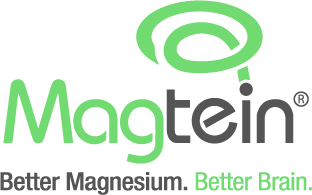The Relationship Between Magnesium and Vitamin C: Unlocking Cellular Health
https://magtein.com/wp-content/uploads/2025/11/Screenshot-2025-11-08-at-8.11.32-PM.png 610 404 Riley Forbes Riley Forbes https://secure.gravatar.com/avatar/3f6c9bbe830133d8a02b6d78dd24a6cf57f35765554b3106fa7c0bce0d8772aa?s=96&d=mm&r=gWhy Cellular Health Matters
Every organ and tissue relies on millions of cells working efficiently. Each cell converts nutrients into energy, repairs internal structures, and communicates with its neighbors. When this process slows, vitality and resilience decline. Supporting cellular health therefore helps maintain strength, cognition, and metabolic balance across a lifetime.*
Among essential nutrients, magnesium and vitamin C play leading roles. Magnesium activates hundreds of enzymes that drive metabolism and nerve signaling, while vitamin C fuels antioxidant protection and collagen synthesis. Together, they reinforce the body’s ability to generate energy, repair tissue, and adapt to stress.*
The Role of Oxidative Stress in Cellular Aging
During normal metabolism, cells create free radicals – unstable molecules that can damage membranes and DNA if not controlled. Vitamin C neutralizes these radicals and restores other antioxidants such as vitamin E, forming the first line of defense against oxidative stress. Magnesium supports this process by stabilizing mitochondrial activity and helping enzymes produce energy efficiently. As a result, both nutrients preserve cellular integrity and reduce the burden of everyday oxidative stress.*
Over time, factors such as aging, poor diet, and environmental exposure can intensify oxidative stress. Adequate intake of magnesium and vitamin C helps sustain mitochondrial performance and promotes long-term cellular vitality.*
Complementary Roles in the Body
Although magnesium and vitamin C act through different biochemical pathways, their effects often converge. Magnesium regulates calcium and potassium balance, supporting muscle contraction and nerve transmission.

Vitamin C enhances immune cell activity and tissue repair. When both are sufficient, cells communicate more effectively, energy metabolism remains steady, and recovery from stress occurs more smoothly.*
Their combined influence highlights how nutrient networks, rather than single ingredients, sustain overall wellness.*
Magnesium and Vitamin C: The Cellular Connection
At first glance, magnesium and vitamin C may seem unrelated. However, several mechanisms reveal how closely they intersect:
- Energy and Mitochondrial Function: Magnesium enables the enzymes that convert food into ATP. Vitamin C helps regenerate other antioxidants, such as glutathione, that keep mitochondria operating efficiently. When both nutrients are adequate, energy production proceeds smoothly.*
- Stress Response and Adrenal Health: Chronic stress increases magnesium excretion and depletes vitamin C stores in the adrenal glands. Therefore, replenishing both nutrients supports a calmer physiological baseline and balanced cortisol activity.*
- Immune and Tissue Support: Vitamin C strengthens immune cell activity, while magnesium regulates inflammatory signaling. In combination, they promote effective immune defense and tissue recovery following exertion or oxidative stress.*
These synergistic effects illustrate why foundational nutrients work best as part of an integrated nutritional network rather than in isolation.*
How Deficiency Can Impact Cellular Function
Modern lifestyles often contribute to overlapping nutrient gaps. Magnesium intake has declined as soil mineral content decreases, while vitamin C levels can fall during illness, high stress, or inadequate fruit and vegetable consumption. Low levels of either nutrient may reduce mitochondrial efficiency, weaken antioxidant capacity, and impair tissue resilience. Recognizing and correcting these subtle deficiencies early can help maintain long-term vitality.*
Supporting Healthy Magnesium and Vitamin C Status
Diet remains the first step toward optimal nutrient balance.
- Magnesium-rich foods: Leafy greens, legumes, almonds, pumpkin seeds, and whole grains supply valuable magnesium.
- Vitamin C-rich foods: Citrus, bell peppers, kiwi, and berries deliver high antioxidant value.

However, dietary intake alone may not always meet daily demands. Evidence-based supplementation can complement nutrition and reinforce cellular defenses. Forms like magnesium L-threonate (Magtein®) effectively cross the blood–brain barrier, supporting neural energy metabolism, while buffered vitamin C formulas may improve digestive comfort and absorption.*
Combining consistent intake with balanced meals, regular movement, and restorative sleep further strengthens overall cellular health.*
The Bottom Line
Magnesium and vitamin C are fundamental to nearly every aspect of physiology – from energy metabolism and immune protection to tissue integrity and stress adaptation. By working together, these nutrients help the body perform efficiently at the cellular level. Maintaining adequate levels through diet and targeted supplementation can promote resilience, vitality, and sustained wellness over time.*
References
- Gröber U, Schmidt J, Kisters K. Magnesium in Prevention and Therapy. Nutrients. 2015; 7(9):8199–8226. doi:10.3390/nu7095388
- Jacob RA, Sotoudeh G. Vitamin C Function and Status in Chronic Disease. Nutrition in Clinical Care. 2002; 5(2):66–74.
- Slutsky I et al. Enhancement of Learning and Memory by Elevating Brain Magnesium. Neuron. 2010; 65(2):165–177. doi:10.1016/j.neuron.2009.12.026
- National Institutes of Health. Magnesium – Fact Sheet for Health Professionals. https://ods.od.nih.gov/factsheets/Magnesium-HealthProfessional/ Accessed 2025.
- National Institutes of Health. Vitamin C – Fact Sheet for Health Professionals. https://ods.od.nih.gov/factsheets/VitaminC-HealthProfessional/ Accessed 2025.
These statements have not been evaluated by the Food and Drug Administration. This product is not intended to diagnose, treat, cure, or prevent any disease.

